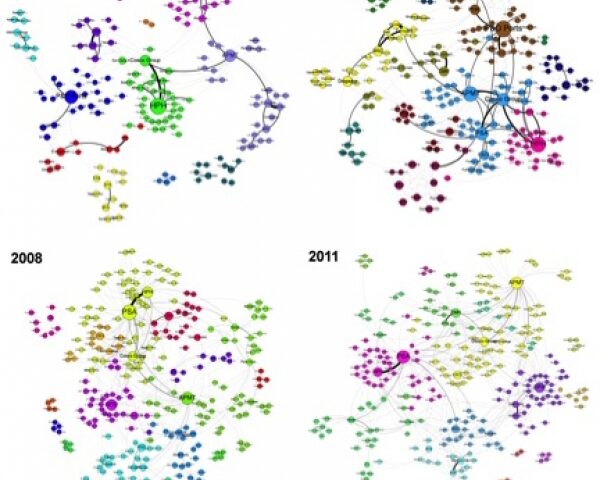PortEconomics associate member Francesco Parola (Department of Business Studies, University of Naples “Parthenope”), along with Giovanni Satta (Department of Economics and Management, University of Genoa) and Simone Caschili (UCL QASER Lab & Centre for Advanced Spatial Analysis, University College London) presented their latest research on “Social and instrumental antecedents of clique survival in the port industry network: A longitudinal perspective” during the the annual conference of the International Association of Maritime Economists – IAME 2014, that was held in Norfolk, Virginia, USA.
The recent proliferation of inter-firm collaborative linkages within the container port industry is progressively shaping a complex architecture of voluntary ties among terminal operators, i.e. an inter-organizational network. Within the overall industry network, some stable groups of densely interconnected firms emerge suggesting the existence of “cliques” where firms repeatedly cooperate with each other and develop strong and durable ties. The growing pressure exerted by environmental uncertainty and market volatility on clique stability, stimulates a fruitful academic debate on clique survival and its determinants.
The present study investigates social and instrumental antecedents of clique survival, focusing on equity joint-ventures (EJVs) engaged by international and local terminal operators in a ten-year timeframe (2002-2011). For this purpose, the study introduces a longitudinal network analysis of inter-firm relationships. In particular, research hypotheses are tested performing binomial logistic regression analysis. In line with network theory assumptions, the outcomes corroborate the explanatory role of a number of social (i.e., cultural similarity and organizational mismatch) and instrumental (i.e. the presence of core firms within the clique and clique equality) antecedents. The results, indeed, bring valuable implications for both academics and practitioners.
You may freely download the paper and presentation @PortEconomics.












